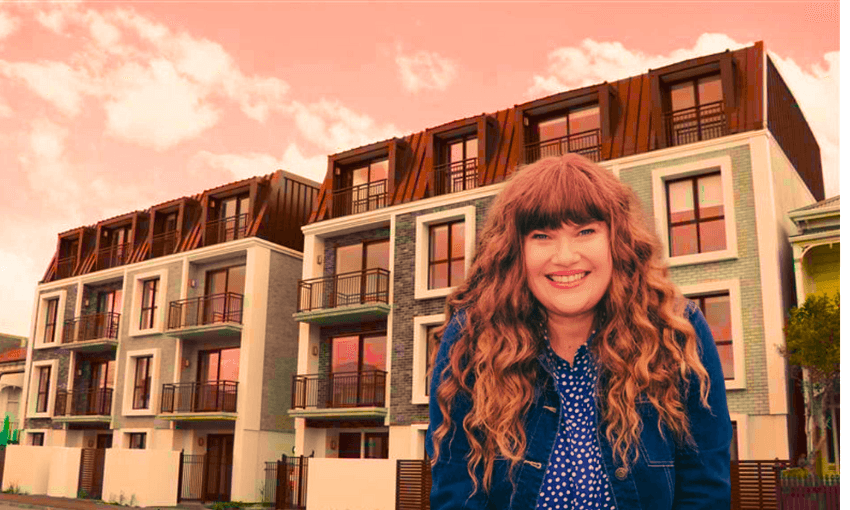Wellington City councillor Rebecca Matthews is one of New Zealand’s most effective advocates for housing reform. But it appears the Labour Party doesn’t want her any more.
On Sunday, April 6, the Wellington Labour Party will vote to confirm its nominees for council candidates in the local body election later this year. The nominations initially closed in March but were extended because the party has struggled to find suitable candidates in several wards and hasn’t found anyone to carry their flag in the mayoral race.
The most conspicuously empty ward is the Onslow-Western ward, which runs from Karori to Khandallah. Labour’s incumbent councillor in the ward, Rebecca Matthews, hasn’t decided whether to run again. If she does, it may not be for Labour.
Wellington Labour local government committee co-chair Paul Tolich confirmed the party had not yet received a candidate nomination for Matthews ahead of the extended deadline. However, no one from the party has asked Matthews to run again.
According to multiple sources within the party, the relationship between Labour and Matthews has grown frosty. There has been an effort to quietly freeze Matthews out so she doesn’t apply for nomination again – and if she did, the membership may vote against her.
When asked whether the party was giving Matthews the cold shoulder, Tolich said, “In any political organisation, there will be groups who like one candidate over another.” He confirmed Matthews was still a financial member of the Labour Party and said, “Constitutionally, we can’t stop a financial member from standing for nomination.”
Who is Rebecca Matthews?
In her two terms on the council, Matthews has made a name for herself primarily as an advocate for housing density and affordability. She’s also been active on climate change and transport issues and chairs the important Long-term Plan, Finance, and Performance Committee.
Matthews was the leading force in the multi-year campaign to enable greater housing density in the council’s District Plan – which culminated in a change that I described as the biggest, fattest W in the history of the pro-housing movement in this country. She wrote several of the most significant amendments to the plan and built support to pass them with a clear bipartisan majority. The changes include reducing the size of character areas, increasing height limits in the inner suburbs, removing front-yard setbacks, and making Adelaide Road a high-density zone.
In the immediate aftermath of the District Plan decision, I praised Matthews as “beloved by the young, activist left, and still pragmatic enough to win broad support” and suggested Labour might eye her up to run in the Ōhāriu electorate. Clearly, I was wrong. The Ōhāriu electorate no longer exists, and Labour is distancing itself from Matthews rather than embracing her.
What’s happened?
The offence that appears to have put Matthews offside with the Labour faithful is that she wasn’t strong enough in opposing the sale of the council’s minority stake in Wellington Airport. To be clear: Matthews never voted to sell the airport shares. She voted against it on three occasions. However, she wasn’t particularly vocal about it and, unlike Ben McNulty and Nureddin Abdurahman, she wasn’t willing to take the nuclear option and vote down the council’s 10-year budget to stop the sale.
The airport sale was a highly emotive issue for Wellington’s unions, who organised a fierce campaign against it, which Oliver Neas covered in great detail in The Spinoff’s three-part series “Privatisation lost”. The ordeal dredged up old trauma of asset sales and apparently left Labour Party members with bad blood towards Matthews, whom they perceived as not having done enough to stop it.
Frankly, I think the party membership is making a huge mistake. If there’s no room for Rebecca Matthews in the Wellington Labour Party, it says more about the local party than it does about her. They’re falling victim to that old trap of the political left: putting an ideological purity test ahead of Matthew’s track record of significant progressive outcomes.
A Green Party insider told me that if Matthews switched parties, she would be welcomed with open arms and surrounded with all the support, awhi and volunteer energy the party could muster. It would be a major recruiting coup for a party that, despite its growth in recent years, still struggles to find serious candidates.
Whether Matthews would want to switch to the Greens is another question. She could run as an independent, or an independent with a party endorsement rather than as a party candidate, or simply not run at all. Labour nominations close on April 2, ahead of a party vote on April 6. If two financial members nominate Matthews as a candidate, it will go to a party membership vote.
What will this mean for the local body election?
Onslow-Western sends its three top-polling candidates to the council based on a single transferable vote (ranked choice). It’s a conservative ward by Wellington standards – it was Andy Foster’s home seat for 27 years. In the 2022 election, Matthews finished third behind Ray Chung and Diane Calvert, two of the staunchest opponents of Tory Whanau’s agenda. The fact that Matthews had been elected there twice – while still achieving significant progressive goals – makes her a political asset. It would be difficult for the Labour/Green coalition to win a council majority without at least one of the Onslow-Western seats.


